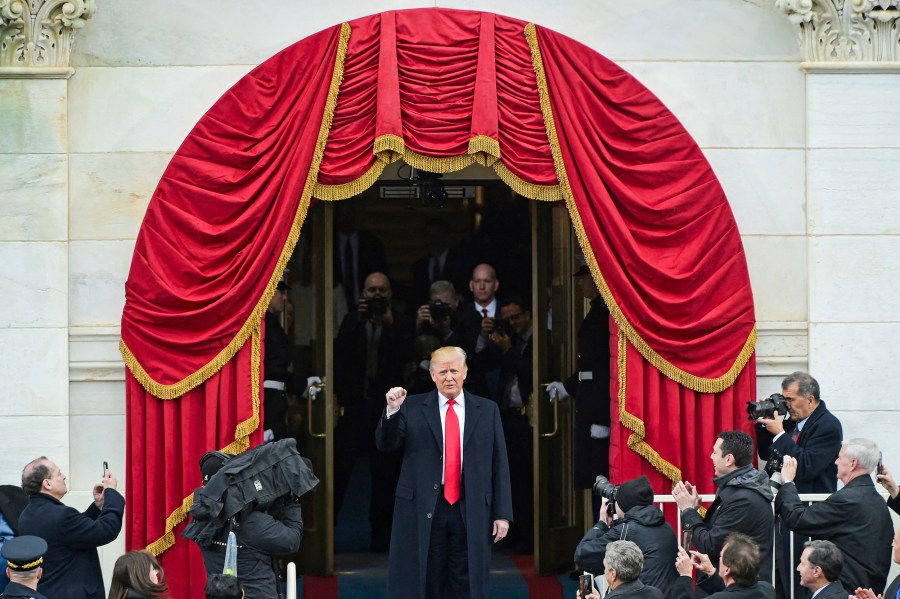Tech tycoons are lining up to donate big sums of cash to President-elect Donald Trump’s inaugural fund ahead of his next stint in the White House. Jeff Bezos’ Amazon has pitched in a million bucks. Mark Zuckerberg’s Meta has tossed in another million. And OpenAI CEO Sam Altman scrounged up a million of his own.
It is both an unsightly and an unsurprising spectacle. Top-dollar corporate donations to an incoming administration’s inaugural fund — which has no legal contribution limit — are routine, a kind of open-air display of patronage and influence-peddling.
Trump’s inaugural fund in 2017 raised all kinds of questions concerning international donors and inappropriate spending.
Big business often plays both sides when it comes to politics, donating in roughly equal measure to both Democrats and Republicans, and inaugural donations are no exception. After banning corporate donations in 2008, Barack Obama accepted them for his 2012 inaugural fund. President Joe Biden also allowed corporations to donate to his inaugural fund in 2020 (Amazon contributed to his fund, although with a significantly smaller $276,000 donation). Biden did, however, prohibit foreign agents and the fossil fuel industry from contributing.
But with Trump, the donations hit different. Since Trump exhibits a personalist style of governance, corporate donations take on the gloss of not just a conventional effort to purchase influence but also a gesture of deference to a leader who can be at turns vindictive or lenient based on a whim. Consider how Trump singled out specific companies like Carrier on what was then Twitter as a tactic to prevent them from shipping jobs overseas (mostly unsuccessfully). Trump has also allowed companies that he favors to be exempt from massive tariffs.

Bezos, Altman and Zuckerberg all have reason to want to get on Trump’s good side. Bezos has, among many other things, cloud computing deals with the federal government to worry about. Zuckerberg knows that Trump has expressed interest in changing the laws that protect social media platforms from liability for what’s on those platforms. And Altman knows that generative AI is a fledgling industry in which novel regulation could dramatically alter its profit capacity and pace of development in the coming years.













